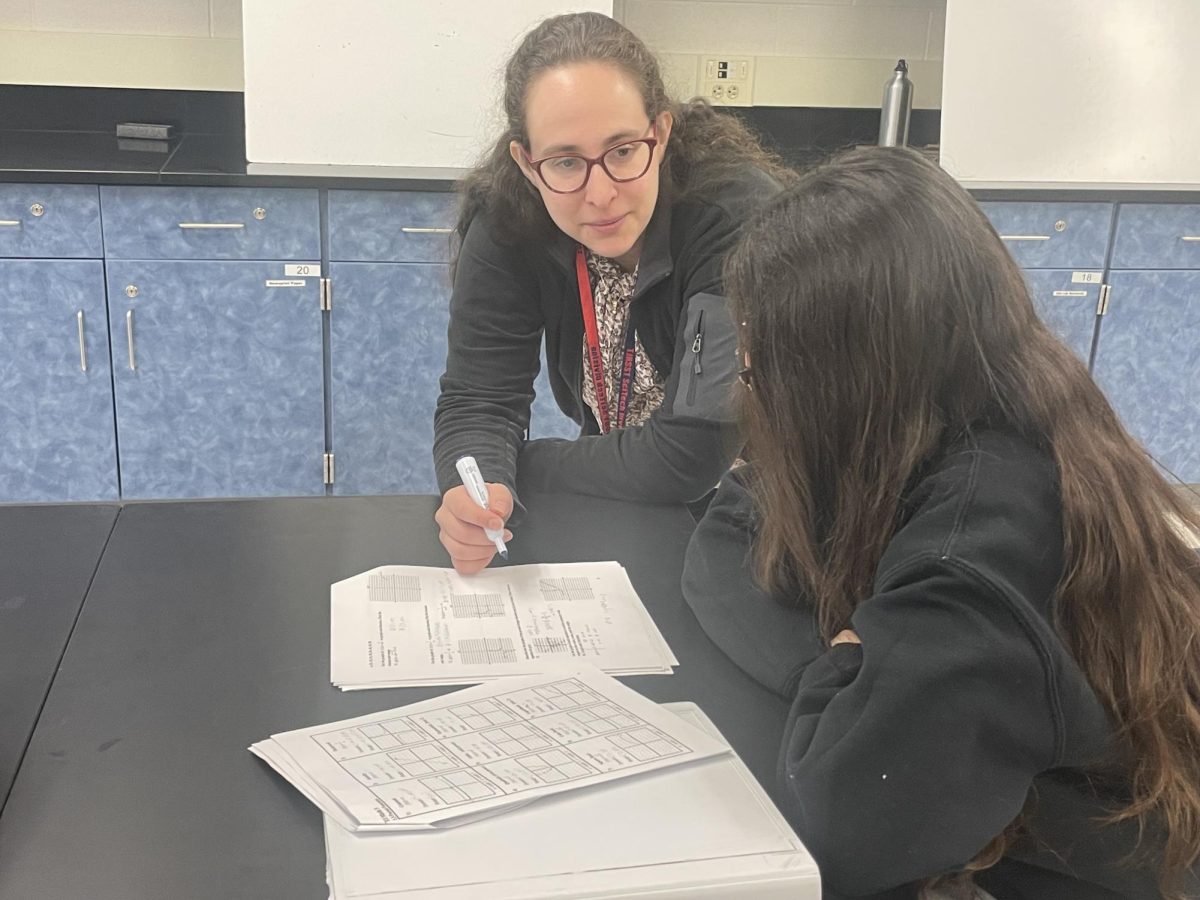The feeling starts small.
The panic from one assigned test settles in.
Then another.
Then another.
Before long, your to-do list is not a provider of mental clarity but rather the catalyst for a breakdown.
It is not uncommon to hear students complaining about their heavy workload at Jefferson. Advocating is one way to keep struggles transparent between students and teachers. However, balancing the difference between asking for much-needed help and complaining about the assigned workload forms a gray area around the subject.
Nuances of student advocacy
“Student advocacy means having the courage and knowing how to ask for things so that you get your needs met and so that you can be your best self, learn as much as possible, and achieve as much as you’re capable of,” physics teacher Elissa Levy said.
Still, students have found some teachers to be more open to hearing student opinions than other teachers.
“I think students know whether each teacher will listen,” sophomore Maria Yayloyan said. “Based on that, they choose who they talk to.”
However, the issue could just be the different ways teachers view as the proper way to advocate.
“It is very difficult to handle verbal requests versus email, at least for me,” history teacher Asher Weinberg said.
Attitude also plays a huge role when advocating.
“Some students are much better at acknowledging whatever they did to create the situation, which makes me a little bit more likely and enthusiastic to help,” Weinberg said.
Who should advocate
“I think it’s good for parents to be involved, but high schoolers should also be learning how to transition into taking matters into their own hands,” biology teacher Lien Le said.
At the same time, it is not always possible for teachers to accommodate all requests. Asking for test postponements is a rarely granted appeal.
“[It’s] always a gray zone with teachers. A lot of it has to do with the number of students we have,” Levy said. “Sometimes, you get responses like, ‘Oh, well let’s find multiple ways to measure what you know.’ Sometimes the answer is, ‘Realistically, I have a hundred and fifty students; we have to assess this way’. There isn’t a fair way to respond to this request.”
Timing is also crucial, and teachers often discourage advocating on a whim, such as reasons due to poor time management.
“Small assignments shouldn’t be advocated for, especially if you knew about it for a while,” sophomore Inaya Amin said. “When you’re advocating, you have to keep in mind your teacher is noticing how much you advocate and at some point, won’t listen when you advocate for something bigger.”
While many students are not afraid to make their opinions and worries heard, other students may have a harder time conversing their concerns with their teachers.
“The challenge we have as teachers is we say, ‘Advocate for yourself, advocate for yourself,’ [but] actually, the half of you [who] are too scared to advocate for yourselves need to speak out,” Levy said. “The half of you that are very comfortable need to start figuring out when you should do it and when you shouldn’t.”
Practicing advocating
“Advisory is a great time to practice,” Levy said. “We did a mock session in my advisory class. It was like come to me and pretend that you need something from me and let’s watch this play out.”
However, setting a standard way for students to advocate is also not ideal, as different teachers organize their classes differently.
“I think to an extent, it does need to be a teacher-by-teacher thing and that also is kind of a life skill because when you’re an adult, you have to learn the ins and outs of a lot of different people that you interact with and what’s the best way to get what you want from them. Having different teachers who have different ideas about advocacy is good because it is more reminiscent of what the world is going to be like,” Weinberg said.
On the other hand, some students believe there are a few things that could be standardized, such as the earlier notification of tests and projects which eliminates the need to ask for date changes.
“In some classes, there’s a set plan [at] the beginning of the year which is good because other classes will do things last second and it’s very overwhelming,” Amin said.
Ultimately, both parties are in agreement that students should never feel afraid or judged when bringing up concerns about a learning environment.
“The reason that teachers exist is to facilitate students’ intellectual and personal growth,” Levy said. “If you are in a space and are not thriving and growing, then your teacher’s job is to help you figure out why.”


